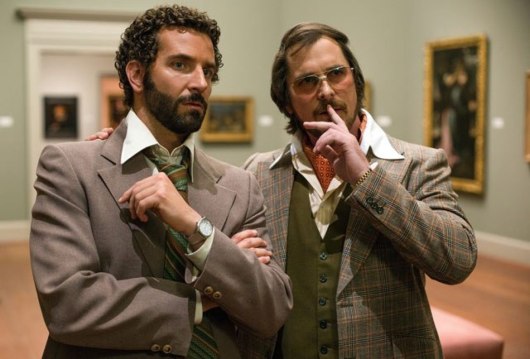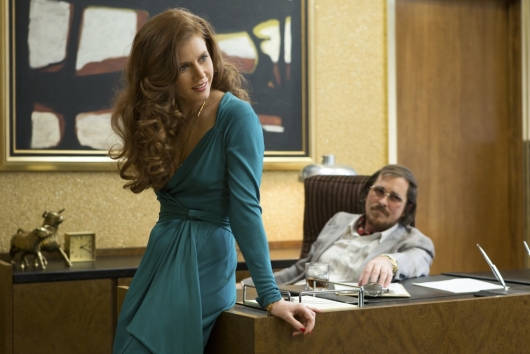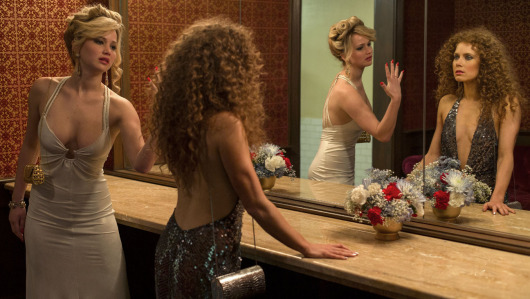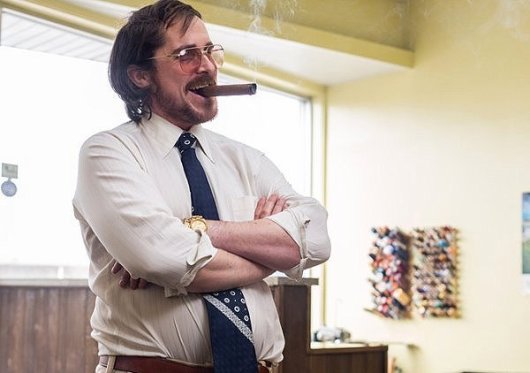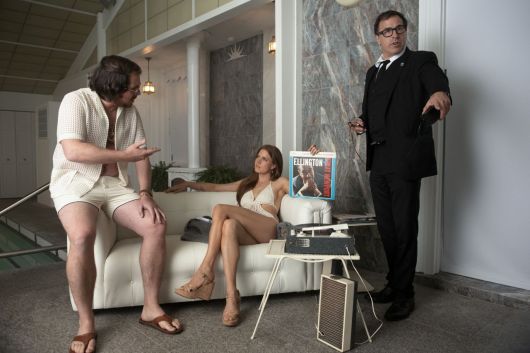 FILM
FILM In Which The Immobility Of Ben Affleck Does Not Impact The Relative Distribution Of Justice
 Monday, March 28, 2016 at 10:30AM
Monday, March 28, 2016 at 10:30AM 
You Will Bleed
by DICK CHENEY
Batman v Superman: Dawn of Justice
dir. Zack Snyder
151 minutes!
There is a scene in Batman v Superman: Dawn of Justice where Lois Lane (Amy Adams) has time for a nice long bath. She is one year past forty, an unmarried woman entering her second prime. Her prominent cheekbones and resoundingly high, nasal tone in her voice keep her looking roughly the same age as her boyfriend, even though he is nine years younger than herself.
Although she is a journalist, she does not spend very much time writing. Her skills lurk more towards the investigative side of the ledger; perhaps an intern even does the actual grunt work on her stories. "No one buys newspapers anymore," grouses her boss (Laurence Fishburne). She lives her life independently of the men in it: if one she likes happens to stroll in on her during one of her long soaks, she may spread her legs for him — if she doesn't have to catch a flight for Johannesburg in the morning.

The basis of her relationship with her boyfriend is relatively unconventional given that he is immortal. She is constantly concerned for his welfare, even though he at times seems impervious to physical pain. When a fat man (Ben Affleck) is about to stab her one and only with a green spear, she intervenes to save her man's life. I liked this, because we do not just have to assume how much she cares about him — Lois showed it.
The fat man has no love in his life. He can in fact barely move; the fat man's butler Alfred (Jeremy Irons) is clearly a more athletic person and practically runs circles around the overweight child he was forced to raise in the absence of any living family. Affleck did not do any of his own stunts, and here he verges on not being able to do any of his own acting, since he has only a few scenes where he has significant dialogue with anyone as Bruce Wayne.

In that scene he is sort of flirting with a model-type Israeli woman (Gal Gadot) who has made an appearance at a fundraiser. "You've never met a woman like me," she tells him, and his response is something along the lines of, "Would you be at all interested in babysitting my kids?" Jennifer Garner played a heroine in the mode of the young woman in Dawn of Justice decades ago, as the love interest of a not-so fat man (Ben Affleck) back when he still had flexibility in his knees. In Dawn of Justice Ben is entirely stationary — we don't see him walk more than two feet without a double taking his place.
On the set of that film Affleck would often suprise her with croquet or a brewski and ask her how she liked being pinched. It was a win-win for the not as fat man, because if she said she did not like it, he would pinch her. You know what happened if she said she did. (The dogshit movie that Affleck directed about a film crew had basically no women in it.) The fat man gets this look on his face everytime he sees a woman like he is glimpsing the gender for the first and last time, whispering away, sotto voce, "Can you believe this?"

Batman has a vision of the future. He is wearing an overcoat but still a mask. At first we can't help thinking how silly he appears but a new look is long overdue for this character and when we are snapped back to the Batcave, we feel a pending nostalgia for what we have witnessed. A time-traveler (Ezra Miller) warns the fat man about Lois Lane's boyfriend, so he decides to kill Superman until he finds out his mother (Lauren Cohan) and Lois Lane's boyfriend's mother (Diane Lane) have the same first name, which is Felicia.
The best part of Dawn of Justice is relatively early on, when we relive the moments where Ben experienced the destructive and murderous battle between Lois Lane's boyfriend and General Zod (Michael Shannon). He tells everyone that they are going to be all right, to be the point where he seems to be have a disturbed stress reaction to all the killing. Even a little girl gets this blank face on her face like, "You just told a guy without his legs that." It is fun to watch powerful people helpless and writhing like worms.

All of the people who are most upset about the hundreds of millions of dollars Lois Lane's boyfriend has cost Metropolis are black, and pressure from this community forces a senator (Holly Hunter) to convene a hearing. Lois Lane tries to explain that he was just trying to pick her up some Papa Johns on the way home, but the black people are contemptuous of Superman's claims on moral righteousness, perhaps being wary of the concept altogether. It turns out that the Israeli model Bruce Wayne met had a tape of a man living underwater, and this man was also an ethnic minority. He makes no further appearance in Dawn of Justice.
It is helpful to think of Superman like a vase. Preserved on a secluded corner table, it will not die of old age. If preserved, it is proof against time, it will never become sick or look differently outside of a few minor imperfections. But it could be broken, and in so being smashed it was capable of death before its time.

Overall I would rate Batman v Superman: Dawn of Justice five stars out of ten stars. I would take one star off because there was really no positive role model of color in the movie. I took another star off because they pretended like Superman was dead, even though everyone knows that is not going to happen. I removed a third star because we never see anyone with their top off, especially not Mr. Affleck. I took another star off because the movie made no sense and had huge holes in its plot. I added a star because it seemed like Scoot McNairy and the fat man were going to kiss at one point, but then they kind of backed off. I took off a star because they digitized Batman's voice and he sounded like a male Siri. I added a star after the scene where Wonder Woman reviewed security cam footage like she was on CSI: Metropolis. I took off a star when Holly Hunter died. I added a star, and it went shooting across the sky. Men and women gawped, but not at the same time.
Dick Cheney is the senior contributor to This Recording.

"Make You Holla" - No Regular Play (mp3)































